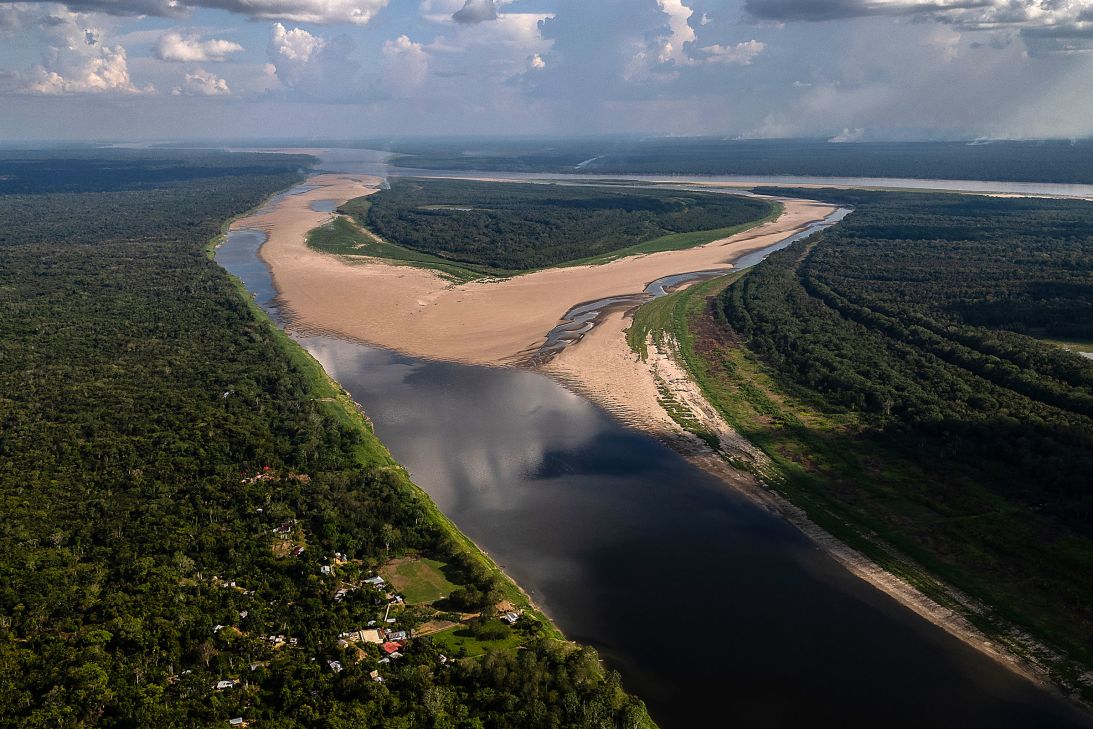UPDATE: The global water cycle is experiencing alarming changes, becoming “increasingly erratic and extreme,” according to a new report just released by the World Meteorological Organization (WMO). The findings reveal that nearly two-thirds of the world’s river basins faced abnormal conditions in 2024, with severe fluctuations between droughts and floods that could jeopardize economies and societies worldwide.
The WMO’s annual report, titled State of Global Water Resources, highlights the devastating impact climate change is having on the water cycle. It notes that last year was the hottest on record, leading to unprecedented water shortages and flooding across multiple regions. Many areas, including the Amazon, experienced river levels dropping to record lows, while parts of Southern Africa suffered extreme drought conditions that prompted governments to cull hundreds of animals, including elephants, to manage dwindling resources.
Amidst these challenges, the report also documented multiple flooding events that exceeded previous years. Europe faced its worst flooding since 2013, while Hurricane Helene caused catastrophic floods in the United States, claiming at least 230 lives. Additionally, devastating floods in West and Central Africa resulted in approximately 1,500 fatalities, underscoring the urgent need for action.
The report emphasizes the critical state of the world’s icy landscapes, revealing that glaciers lost a staggering 450 gigatons of ice for the third consecutive year. This loss is equivalent to a block measuring 4.3 miles in height, width, and depth—enough water to fill 180 million Olympic swimming pools. Regions such as Scandinavia and the Arctic archipelago of Svalbard reported record glacial melt, raising alarms about rising sea levels and increased flooding risks.
Stefan Uhlenbrook, a lead author of the report, stated, “Despite the heat and drought, we also observed multiple floods, even more than in other years.” The rising temperatures have also compromised water quality in nearly all of the world’s 75 main lakes, highlighting the widespread ramifications of climate change on water resources.
The economic toll of the increasingly erratic water cycle is difficult to quantify, but single flood events in 2024 caused damages running into billions. Uhlenbrook warns that as water availability continues to fluctuate, it could also “fuel tensions and conflicts” among nations and communities.
Celeste Saulo, the WMO secretary-general, emphasized the vital role of water, stating, “Water sustains our societies, powers our economies, and anchors our ecosystems.” She added that the growing pressure on global water resources is leading to more extreme water-related hazards that are profoundly impacting lives and livelihoods.
As the world grapples with these urgent issues, attention must turn to sustainable management and protection of water resources. The latest developments indicate a critical need for international cooperation and effective policies to combat the adverse effects of climate change on the global water cycle.
Stay tuned for further updates as this story develops.
